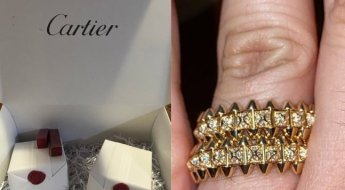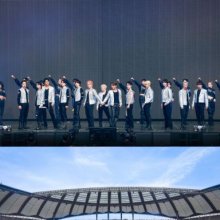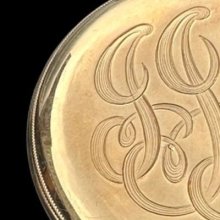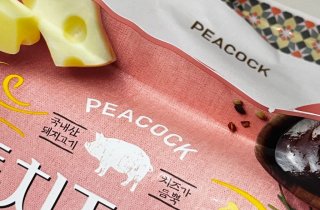Lee Sang-il. Some may wonder if he is a new Korean director. But he is a third generation Japanese Korean, born and raised in Japan, and a director who became the rising star of the country's film industry with "Hula Girls" starring Yu Aoi. Then his film "Villain," which premiered in Korea on June 9, grabbed five awards at the 34th Japanese Academy Awards including best actor, best actress and music, solidifying his status in the industry.
"Villain," based on a novel of the same name by Yoshida Shuichi, is about a man who accidentally commits a murder and the sad and breathtaking escape of a woman who falls in love with that man at that very moment. It is also a movie which, at the very last moment, asks the audience, "The world is saying the right thing, right? That man, he was a villain, wasn't he?"
10: I heard that you watched your film "Villain" with director Bong Joon-ho. I hope it was an enjoyable encounter.
Lee Sang-il: I was very thankful because he must've been very busy. I always look forward to director Bong's new works and he's the person who has made films that've had the most influence on me personally so I had been very curious to see what he'd say about "Villain."
10: And what did he say about it?
Lee: I couldn't say it myself... Please ask him yourself. (laugh) Before getting to watch it, he said he had considered it a mystery pic dealing with a murder. But that he gradually started to see the various aspects to each and every character and how the movie tried to face the fundamental questions that stem from them, instead of avoiding them. That's what left an impression on me.
Lee: I refer to that as the 'rocket start.' It's not just for this movie... I like having my movies shoot up like a rocket and stay up. People usually say the success or failure of a movie is decided within the first ten minutes of its running time but I'm always thinking of how to maintain that vibe from the first ten minutes till the very end. "Villain" doesn't contain a grandiose story and a lot of new characters appear everytime the scene changes so you might've felt that way since I had struggled with the script, trying to make viewers not be able to take their eyes of from the new characters that constantly emerge.
10: It almost felt as if I was running a 100-meter race for two hours non-stop.
Lee: I've been told many times, by people around me or with more experience, that I need to control the pace of how I shoot and edit my work and learn to even it out better. But I think it'll be difficult to do as long as I stay fit physically. (laugh)
10: Do you have such rocket-like momentum and physical strength for everything you do, even outside of movies?
Lee: No, only with films!
10: Well, the most unexpected member of the cast for "Villain" was of course Satoshi Tsumabuki who played the role of Yuichi because he's not the type that would go unnoticed in a fishing village. (laugh) Were you not worried that his exceptional beauty would get in the way of the audience judging who Yuichi is and his actions?
Lee: Hmm... Satoshi isn't good-looking to that extent. (laugh) No, he's good-looking but it would have been boring if someone who looks like a villain played the villain. There are those types in real life as well, right? Guys who seem masculine and handsome up close but are somehow not attractive and don't catch people's eyes. So I was thinking that if Satoshi, despite his handsome face, pulled off a character who has no confidence and hence does not come off as being attractive at all, would have a greater effect than having an ordinary-looking person play the role. In a way, I was putting myself up to that challenge by casting him.
10: Well I wanted to beg for the pretty-faced Satoshi that I was used to, to come back while watching the movie (laugh) but I think it ended up being a good challenge for Satoshi Tsumabuki as well. What sort of efforts did you put in to find that point of contact between Tsumabuki and Yuichi?
Lee: Rather than looking for a point of contact, I was just sure that there was a side to Satoshi that I or nobody knows of. I mean he's good-looking, popular and a successful actor who has appeared in many movies. But he had a lot of concerns about his path as an actor. He had come to the point where he needs something much more uniquely powerful than just 'cute' and 'handsome.' For example, he's not someone who has the individuality that actors like Tadanobu Asano or Joe Odagiri. And he was already aware of this about himself. In that sense, he had a definite goal to reach through "Villain."
10: Watching Tsumabuki's acting in "Villain" reminded me of how Leonardo Dicaprio went from being a pretty face to an actor who takes on masterpieces in Hollywood.
Lee: How he cried when he won the award for Best Actor for a Leading Role at the Japan Academy Awards. I wanted to tell him to stop (laugh) although I just quietly hugged him behind the stage afterwards. But then he cried again on the day the movie premiered. He's not the type that cries a lot but I guess he was scared of how people will accept his new style of acting which he took on by pushing himself to his limit. So I think they were tears of relief, that he got acknowledged for it.
10: Yuichi's blond hair and red clothes left a strong impression on me because in a way, it seemed like he wanted to live going unnoticed.
Lee: Well, he isn't someone who can communicate through dialogue. But that doesn't mean that he doesn't have the desire to show himself, as is probably the case with all human beings. So we showed that through his hair and clothes. But that too comes from instinct, not because he wants to draw attention to himself. For example, unconsciously choosing the brighter article of clothing when you have dark and bright clothes in front of you. So Yuichi's blond hair too was probably something that his subconscious is revealing of his inner desires. I actually asked the hair stylist to refer to the hair color actor Song Kang-ho wore in "The Host" in showing the messy details to Yuichi's blond hair. (laugh)
10: Mitsuyo, played by Eri Fukatsu, is the character that undergoes the most change. It's not like her facial expression changed dramatically in the end compared to how she was in the beginning of the movie but I was convinced that she had changed.
Lee Sang-il: The novel had been in the form of a road movie, wandering about the northern area of Kyushu. And various people would appear in different locations. But I wanted the film to change depending on the characters, not the landscape. In other words, the story wouldn't revolve around the incidents that occur in various locations but rather develop through the various characters within the story. So I wanted it to seem like Mitsuyo's face revealed new expressions instead of them just changing. I think I had discussed with Eri that I want her to seem that there are innate desires of hers that are gradually becoming satiated and that those hidden desires are revealing themselves, one after another.
10: Mitsuyo wouldn't budge an inch outside her house and workplace so I was praying that something happen to Mitsuyo's life, to the extent that her being kidnapped, whether it was fate or a tragedy, was a festive occuring to her life.
Lee: Basically put, she's someone who came to life after meeting Yuichi. And she became moved and happy by the fact that she too is someone that someone else needs. The desire to love and be loved surpassed the ethical need to distinguish good from bad and recognize morales. That's what's charming about Mitsuyo.
10: If I may say so, doesn't the joy in being a director come from the moments that an actor reaches or even surpasses a point that you had not expected to see nor had asked to be shown.
Lee: That's right. That moment you just spoke of is probably when a director feels the most joy from shooting a movie. Also, I was thinking that the expression Eri Fukatsu put on when she was being strangles was the best! (laugh) I think directors go on set with the hope that the cast will show acting beyond imagination. Which scene did you like?
10: The smile that Mitsuyo puts on as she folds the bottom hem of her male customers' pants at the tailor shop. I felt both annoyed and sorry for her in how she has always lived her life as a woman who has been kind to everyone and is unaware of her own desires.
Lee: That's right. Uniforms seem to turn people into symbols instead of leaving them as individuals.
※ Any copying, republication or redistribution of 10Asia's content is expressly prohibited without prior consent of 10Asia. Copyright infringement is subject to criminal and civil penalties.
Senior Reporter : Beck Una one@
Editor : Lee Ji-Hye seven@, Jessica Kim jesskim@
꼭 봐야할 주요뉴스
![[단독]1억1400만…주요 금융권 女 연봉 1위는 '이 곳'](https://cwcontent.asiae.co.kr/asiaresize/93/2024042908112855121_1714345888.jpg) [단독]1억1400만…주요 금융권 女 연봉 1위는 '이 ...
마스크영역
[단독]1억1400만…주요 금융권 女 연봉 1위는 '이 ...
마스크영역
<ⓒ투자가를 위한 경제콘텐츠 플랫폼, 아시아경제(www.asiae.co.kr) 무단전재 배포금지>




![Director Lee Sang-il [Beck Una/10Asia]](https://cphoto.asiae.co.kr/listimglink/1/2011061019300837240_1.jpg)
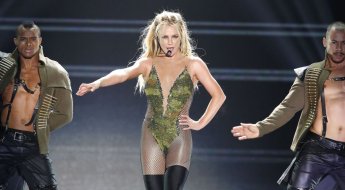
![해지한다고 하면 '혜택' 와르르? 장기 고객일수록 손해[헛다리경제]](https://cwcontent.asiae.co.kr/asiaresize/269/2024042523272353043_1714055243.jpg)






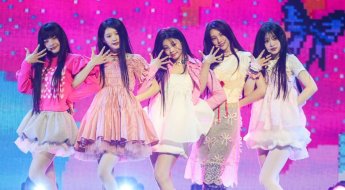




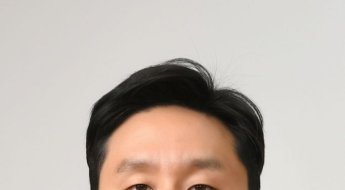


![[초동시각]코리아디스카운트 해소, 좀비기업 청산부터](https://cwcontent.asiae.co.kr/asiaresize/269/2024042610515919958A.jpg)
![[시시비비] '4월 위기설'은 끝나지 않았다](https://cwcontent.asiae.co.kr/asiaresize/269/2024042610302924644A.jpg)
![[시사컬처]뉴진스보다 신데렐라였던 민희진의 운명은?](https://cwcontent.asiae.co.kr/asiaresize/269/2024042611443372329A.jpg)
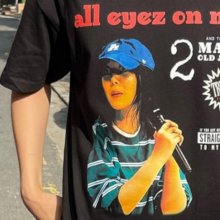
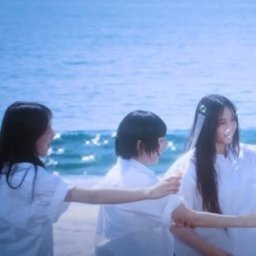
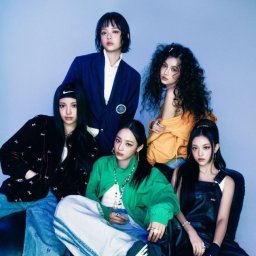
![[포토]美 브레이킹 배틀에 등장한 '삼성 갤럭시'](https://cwcontent.asiae.co.kr/asiaresize/113/2024042908540855266_1714348448.jpg)


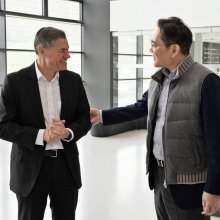

![[포토] '벌써 여름?'](https://cwcontent.asiae.co.kr/asiaresize/276/2024042615260154090_1714112761.jpg)



![[뉴스속 인물]하이브에 반기 든 '뉴진스의 엄마' 민희진](https://cwcontent.asiae.co.kr/asiaresize/113/2024042510502452065_1714009823.png)
![[뉴스속 용어]뉴스페이스 신호탄, '초소형 군집위성'](https://cwcontent.asiae.co.kr/asiaresize/276/2024042415131250718_1713939192.jpg)
![[뉴스속 용어]日 정치인 '야스쿠니신사' 집단 참배…한·중 항의](https://cwcontent.asiae.co.kr/asiaresize/276/2023042111281396915_1682044092.jpg)
 가장 많이 읽힌 뉴스를 제공합니다. 집계 기준에 따라 최대 3일 전 기사까지 제공될 수 있습니다.
가장 많이 읽힌 뉴스를 제공합니다. 집계 기준에 따라 최대 3일 전 기사까지 제공될 수 있습니다.
